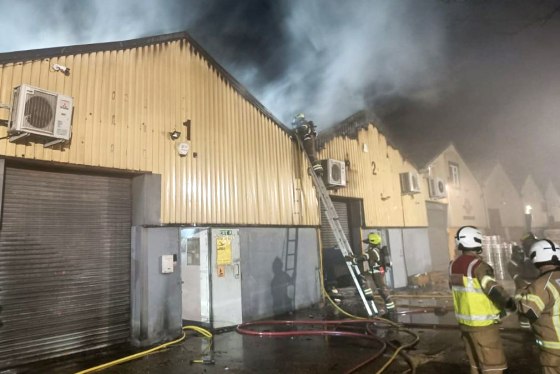A new investigation by Novaya Gazeta Europa has uncovered a Russian intelligence gathering operation that uses a Telegram bot to recruit Russian-speaking residents in Europe to collect information about military facilities and activities in the EU and Ukraine.
According to the investigation, Russian pro-Kremlin Telegram channels have been publishing monthly recruitment calls over the past six months, asking Russian speakers to share information about NATO military objects through a specialized bot. The bot's "sales pitch" asks Europeans and Ukrainians to transmit information on military-linked facilities, adding, "We need eyes and ears in Ukraine and on the territory of Europe.”
Novaya Gazeta Europa found that while the channels appear anonymous, they traced the distribution of these recruitment messages to the member of the occupation authorities of Crimea, Ksenia Temnik, head of a "legal department" at Crimea's "military commissariat." The publication notes that Temnik received her Russian passport in April 2014 following Russia's annexation of Crimea and has since held various positions in the Crimean administration.
The investigators did not name both occupied Crimea-linked channel and the spy recruitment Telegram bot.
Ukraine's Security Service often reports that suspected spies and saboteurs were recruited by Russian intelligence through messaging apps, frequently highlighting Telegram chats in the accompanying photos.
Russia's intelligence gathering
When contacted by the publication's journalist posing as a potential informant, the bot operators requested:
- Photos and videos of NATO armed forces
- Information about military equipment movements
- Details about Ukrainian specialists' training locations
- Detailed maps and guidebooks from European countries
- Purchase and activation of anonymous SIM cards
The operators, claiming to serve in the Russian Airborne Forces (VDV), expressed particular interest in monitoring the situation along the Belarus border for potential NATO troop concentrations, Novaya Gazeta Europa reported.
The investigation revealed that bot operators provided detailed security guidelines to potential informants, including:
- Immediate deletion of photographs after transmission
- Removal of compromising correspondence
- Maintaining silence about support for Russia
- Developing cover stories for interest in military objects
Earlier, several Russian spies and saboteurs were arrested in EU
The report notes that several European Union countries have reported Russian intelligence services' involvement in organizing sabotage operations in their territories over the past year.
Notable incidents include:
- Estonia arresting more than ten individuals accused of following Russian intelligence services' orders
- Latvia reporting recruitment attempts for spying on a NATO airbase
- German prosecutors announcing in April the arrest of two Russian and German citizens allegedly preparing explosions at industrial and military facilities
- Polish authorities arresting a group accused of attempting to disrupt trains delivering aid to Ukraine
The investigation follows a September 2024 OCCRP report about similar recruitment bots on Telegram, though those operators were reportedly more direct about requesting criminal activities, such as arson, sabotage, and assassinations, according to Novaya Gazeta Europa.
Related:
- Suspected Russian agents arrested for sabotage plot to derail military train
- Finland says Russian shadow fleet tanker crew planned more cable sabotage before arrest
- Russia paid Taliban to target US troops in Afghanistan in 2016-2019, investigation reveals
- Sumy husband-wife team to face trial for revealing Ukrainian defense positions to Russians
- Moldovan intelligence report reveals pervasive Russian interference tactics
- Romania thwarts suspected Russian-directed sabotage attempt
- WSJ: US-bound planes possibly targeted in Russian DHL-linked incendiary scheme
- Belgium strengthens security measures due to possible sabotage and espionage
- Russia systematically spying on strategic Western infrastructure in Baltic and North Sea
- UK intel: Russia’s GRU unit known for sabotage, assassination attempts in EU responsible for cyberattacks aiding Ukraine invasion
- Insider: Family of illegal immigrants helped Russian intelligence organize explosions, poisonings in Europe

